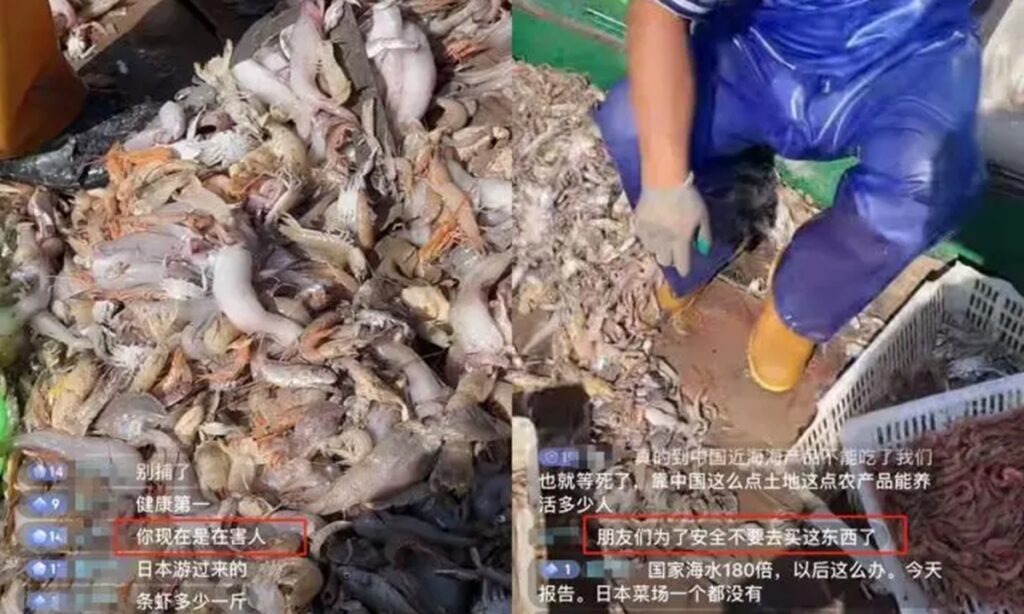Chinese fishermen have appealed for a rational response after Japan’s dumping of nuclear-contaminated wastewater triggered online attacks in response to selling home-grown seafood through livestream channels.
“We really don’t have contamination currently. The seafood from coastal waters is safe,” a fisherman from East China’s Zhejiang Province said in his livestream on Saturday morning as several netizens kept questioning the seafood’s safety. Some even attacked the fisherman as harming other people, interrupting the livestreaming, the Paper reported.
According to the fisherman’s wife surnamed Wang, there were nearly 2,000 people on the live stream with many were attacking her husband, who had never encountered such situation before having been a fisherman since the age of 17. Wang said her husband repeatedly urged netizens to remain rational and not to create a negative atmosphere, but failed and lost motivation for livestreaming due to negative comments.
Negative comments such as “Don’t eat! Don’t eat! Don’t eat!”, “Variant fish!”, “Eat and you get cancer” have flooded the screen of another fisherman’s live stream which attracted an audience of 20,000 people, leaving the livestreamer angry and helpless.
As the Japanese government started dumping nuclear-contaminated wastewater from Thursday despite of strong opposition from within and from neighboring countries, China’s General Administration of Customs halted the import of aquatic products from Japan to prevent any contaminated food from entering China, vowing to protect the Chinese people’s health and food safety.
There’s no need for panic over seafood products in the short term, said Zhou Zhongyuan, an associate professor at the College of Marine Life Sciences of Ocean University of China, Chao News reported.
“China has fully suspended the import of Japanese aquatic products. And the seafood from distant seas and China’s coastal waters can still be consumed as they will undergo rigorous testing before entering the Chinese market. If exceeding the safety standards, these products won’t be allowed to enter the market,” said Zhou.
According to the 2022 National Fishery Economic Statistical Bulletin released by the Ministry of Agriculture and Rural Affairs, China’s combined fishery population reached about 16.2 million people with more than 1.5 trillion yuan (roughly $209 million) total output value in 2022, which included a marine capture output value of about 248.9 billion yuan and a marine aquaculture output value of about 463.9 billion yuan.
(Global Times)




